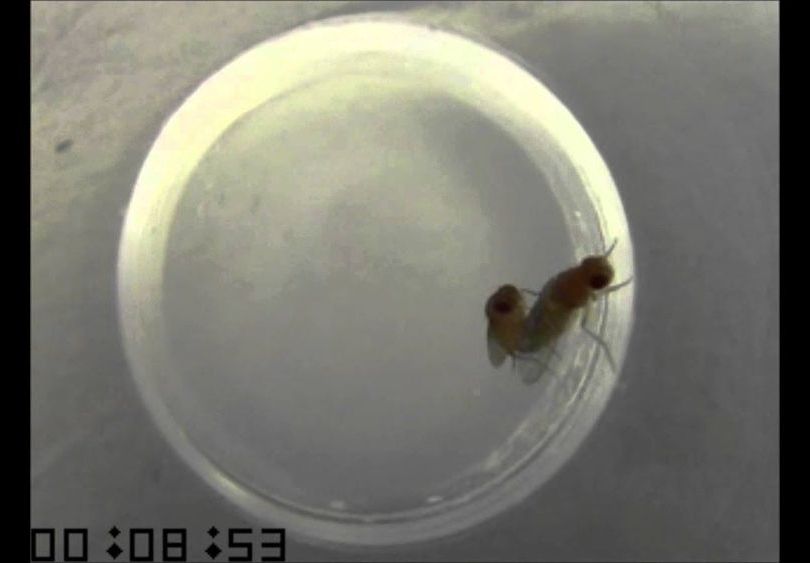Time can be measured in many ways: a watch, a sundial, or the body’s natural circadian rhythms. But what about the sexual behavior of a fruit fly?
“If you ask a bunch of scientists whether animals can keep time, many would say they cannot, that things happen over time—but time itself is not measured,” says Michael Crickmore, Ph.D., a researcher in Boston Children’s Hospital’s F.M. Kirby Neurobiology Center whose laboratory studies motivation. But in new research published in the journal Neuron in collaboration with the lab of Dragana Rogulja, Ph.D. at Harvard Medical School, he shows that the mating behavior of fruit flies is not haphazard. Instead, motivation and behavior are under the control of neurons that track time.
Crickmore uses the mating drive in male flies to study how motivations are produced by the brain.
